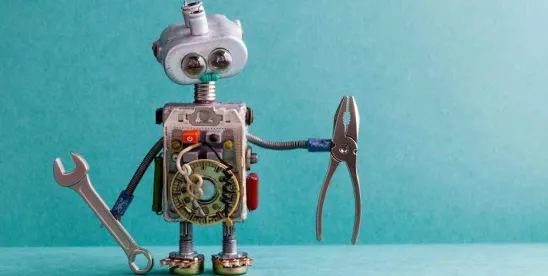In recent years, Americans and policymakers in Washington, DC, have become increasingly fixated on artificial intelligence (AI), especially generative AI, and the economic and social considerations associated with the technology. While the emergence of the technology has led to increasing interest among Members of US Congress in both parties to set a foundation for its use in education, defense, research, and health, policymakers on the right continue to raise questions about whether, and how, the federal government should regulate AI.
The election of Donald J. Trump and the Republican control of Congress provides an opportunity to shift Washington, DC’s technology and innovation agenda in a conservative fashion. While the Biden Administration emphasized growing the nation’s tech infrastructure, setting a foundation for government-assisted investments in AI across industries, and limiting the size of the nation’s largest tech companies through Federal Trade Commission (FTC) lawsuits, the tech industry will face a different set of views as the Republican “trifecta” takes hold in January 2025. Below are some initial thoughts on what you can expect regarding efforts to regulate AI now that the 2024 elections have taken place.
Executive Branch
- A Trump Administration is likely to echo some of the concerns laid out by the Biden Administration (i.e., online platforms are a danger to young people) and could also pursue additional efforts to rescind the industry’s liability shield, known as Section 230. The House Committee on Energy and Commerce released and debated bipartisan legislation to wind down Section 230, and the Trump Administration could reach across party lines to open up free speech online.
- The Biden Administration has requested billions of dollars from Congress to scale the National Artificial Intelligence Research Resource and proposed an AI Bill of Human Rights. We expect Congressional Republicans and the Trump Administration to move away from these ideas in pursuit of free-market AI development.
- Outside of calling for enhanced defense applications and increasing domestic energy production to boost AI development, President-elect Trump is likely to move away from the Biden Administration’s efforts to categorize high-impact uses of AI, limit the use of AI in elections and television advertisements, define privacy and liability standards for AI use, or structure the many intellectual property and copyright issues that accompany AI use.
- We expect the core of Republicans’ technology agenda during the 119th Congress to emphasize a smaller role for the FTC, which sued several tech companies during the Biden era, letting the industry deploy investments in future technologies, like AI, without interference from government regulations to spur entrepreneurship and job creation.
- President-elect Trump himself offered a window into his thinking on AI policy at a rally in Cedar Rapids, Iowa, when he stated that he will “cancel [President] Biden’s artificial intelligence executive order and ban the use of AI to censor the speech of American citizens on day one.” The repeal of President Biden’s executive order (EO) could result in prioritizing competition and innovation in the private sector over government regulation. In June, President-elect Trump, in a podcast with social media influencer Logan Paul, said that he is afraid how the use of deepfakes of a US President threatening a nuclear strike could potentially prompt another state to respond, thereby starting a nuclear strike war. Even though he plans on repealing President Biden’s EO on AI, it appears that Trump recognizes the national security concerns faced with AI.
- Among President-elect Trump’s closest advisors, Vice President-elect Vance has encouraged loosening regulations and a hands-off approach on AI. During a US Senate hearing on privacy and AI, Sen. Vance alleged that regulations within the Big Tech space would “entrench the tech incumbents that we actually have, and make it actually harder for new entrants to create the innovation that’s going to power the next generation of American growth.” Vance has on several occasions called for less regulation of Big Tech companies but also urged that they be more accountable.
- Since Elon Musk has become a close adviser to the President-elect, it is worth noting that in August, Musk posted on his social media platform, X, in support of the now-vetoed California AI safety bill that would have placed guardrails on AI developers. In his tweet, he said, “[t]his a tough call and will make some people upset, but, all things considered, I think California should probably pass the SB 1047 AI safety bill. For over 20 years, I have been an advocate for AI regulation, just as we regulate any product/technology that is a potential risk.”
Congress
Many of the major players in Congress have introduced legislation to address various problems regarding AI. AI working groups have sprouted up in each chamber of Congress, within most committees, and among various caucuses like the New Democrats. Additionally, economic competition with China and the pace of America’s advancement in AI research continues to be a driving factor in motivating Congress to include a comprehensive AI bill in the omnibus or defense authorization that will pass later this year.
Among the stakeholders enveloped in the AI debate, Members of Congress fall into two categories: (1) advocates for creating a new federal agency to regulate AI or (2) those who prefer to let the private sector innovate without stringent government oversight. While these perspectives cross party lines, the likely incoming Chairman of the Senate Committee on Commerce, Science, and Transportation, Sen. Ted Cruz (R-TX), stands out as one of the most prominent advocates of reducing government intervention into the development of AI. He also stands out as an opponent of several bipartisan bills that moved through the committee during the 118th Congress because he says they would stifle innovation and limit the development of our domestic AI industries.
Sen. Chuck Schumer (D-NY), the highest-ranking Democrat in the Senate and key architect of this summer’s AI Policy Roadmap, has also pressed colleagues to finalize comprehensive legislation that will shape the future of AI in the United States over the next decade. Sen. Schumer and several bipartisan colleagues have prioritized ideas that would provide substantial funding for AI research, industry-specific rules for AI use, transparent model testing, and workforce upskilling in any future AI package. Due to the looming swap in control of the Senate and the return of Trump to the White House, our analysis suggests that the new fault lines in Washington, DC, will complicate any major financial investments in AI later this year.






 />i
/>i
